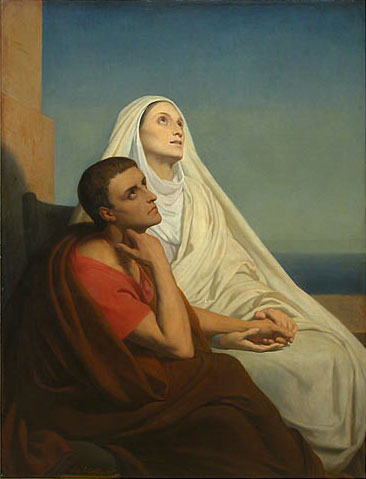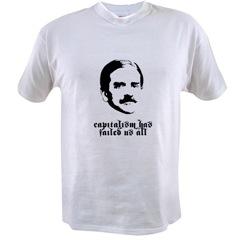In every stall in every bathroom in a museum or gallery (which may or may not be empty), install whiteboards (with markers attached with string) within easy reach of toilet.
Yearly Archives: 2006
locus solus industries 004
Locus Solus Industries, a brave experiment in capitalist failure, presents LS004, which also marks the inauguration of Senza Press, a brave experiment in publishing failure. Available now from Lulu: an edition of Herman Melville’s Timoleon, etc.. Originally published in 1891, the year in which Melville died, Timoleon was Melville’s last published book. As far as I can tell, this is only the second edition of the book: Melville having completely given up on the American literary establishment at that point, it was originally published in an edition of 25 and received no attention from anyone.
Here is what the cover looks like:

Click here to go to Lulu to buy a copy for $5.81 (the cheapest you can do it at Lulu), or click here to download the full PDF (488kb) for free.
The print edition is 6″ x 9″ and 64 pages long; the PDF version includes the covers and is set up as spreads. I have not seen the print version and cannot vouch for its printing quality, but that’s what the Internet’s all about, isn’t it? As I typed the whole thing in (thanks for nothing, Project Gutenberg), it is almost certainly riddled with errors. But: if the errors are pointed out to me, I will happily correct them and make a new version.
saint augustin et sa mère, sainte monique
Ary Scheffer, Saint Augustin et sa mère, Sainte Monique, 1846 (Paris: Musée du Louvre)
(found in Geoffrey Bennington & Jacques Derrida’s Jacques Derrida)
janouch on kafka on work
“On my next visit to Kafka I inquired:
‘Do you still go to the carpenter in Karolinenthal?’
‘You know about that?’
‘My father told me.’
‘No, I have not been for a long time. My health does not permit it any more. His Majesty the Body.’
‘I can quite understand. Working in a dusty workshop is not very pleasant.’
‘There you are wrong. I love to work in workshops. The smell of wood shavings, the humming of saws, the hammer-blows, all enchanted me. The afternoon went so quickly I was always astonished when the evening came.’
‘You must certainly have been tired.’
‘Tired by happy. There is nothing more beautiful than some straightforward, concrete, generally useful trade. Apart from carpentry, I have also worked at farming and gardening. It was all much better and worth more than forced labour in the office. There one appears to be something superior, better; but it is only appearance. In reality one is lonelier and therefore unhappier. That is all. Intellectual labour tears a man out of human society. A craft, on the other hand, leads him towards men. What a pity I can no longer work in the workshop or in the garden.’
‘But you would not wish to give up your post?’
‘Why not? I have dreamed of going as a farm labourer or an artisan to Palestine.’
‘You would leave everything behind?’
‘Everything, if I could make a life that had meaning, stability, and beauty. Do you know the writer Paul Adler?’
‘I only know his book The Magic Flute.’
‘He is in Prague. With his wife and the children.’
‘What is his profession?’
‘He has none. He has no profession, only a vocation. He travels with his wife and the children from one friend to another. A free man, and a poet. In his presence I always have pangs of conscience, because I allow my life to be frittered away in an office.’
(Gustav Janouch, Conversations with Kafka, trans. Goronwy Rees, pp. 15–16)
locus solus industries 003
Despite the failure of our last product at the dread hand of copyright, Locus Solus Industries bravely marches ever onward. Here is Locus Solus 003:
Mr. Roussel is, alas, safely dead, and hopefully no one will complain about this one. Also, you can click on that little picture and see a much bigger black-and-white graphic where you can admire the ligatures on the type.
gass on elkin on work
“Vocation: that is no trade-school word for him. What is your name? Where are you from? What do you do? Among those who survey the habits of Americans, there are many who find these questions, which are likely to be among the first beckoning blanks we fill in on forms, and the first we put to strangers, indicative of our indifference to the essential self. Should men and women, after all, be defined in any important way by their work? The answer is, of course, yes; otherwise, the activities that largely support our lives and consume our time would be unfriendly, foreign, and irrelevant to us. Our occupation should not be something we visit like the seashore in summer or a prisoner in prison, despite the fact that the work may be unpleasant and dangerous and hard, like that in a mill or a foundry or a mine. Even if it is like speaking a foreign language we haven’t mastered, that incapacity itself is totally defining.”
(William Gass, “Open on the Sabbath”, in A Temple of Texts: essays, pp. 246–247)
everything was broken, again.
But: it seems like it works now.
In the interim: an if:book post on looking at books in Paris.
Also: some Circumference 4 is online. Even in Beijing.
there is a chicken in here somewhere
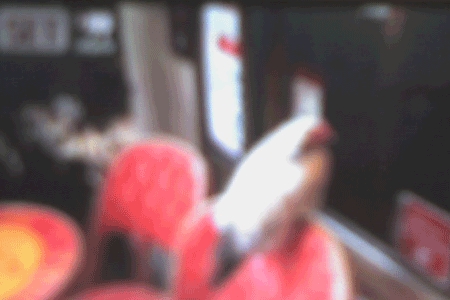
(with a nod to Alex.)
three book covers in two languages
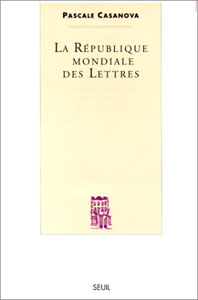
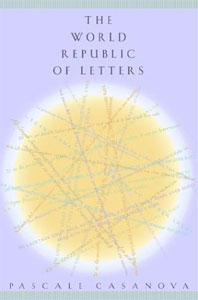
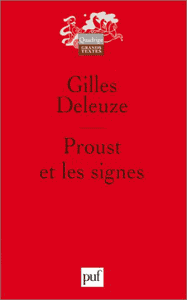
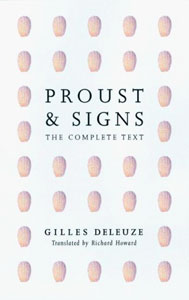
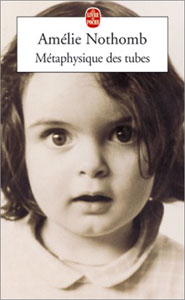
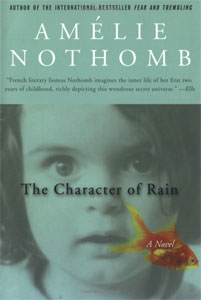
the trance of travel
“And the unity of all the views of a train journey is not established on the basis of the circle itself (whose parts remain sealed), nor on the basis of the thing contemplated, but on a transversal that we never cease to follow, moving ‘from one window to the next.’ For travel does not connect places, but affirms only their difference.”
(Gilles Deleuze, Proust & Signs, trans. Richard Howard, pp. 126–127)
